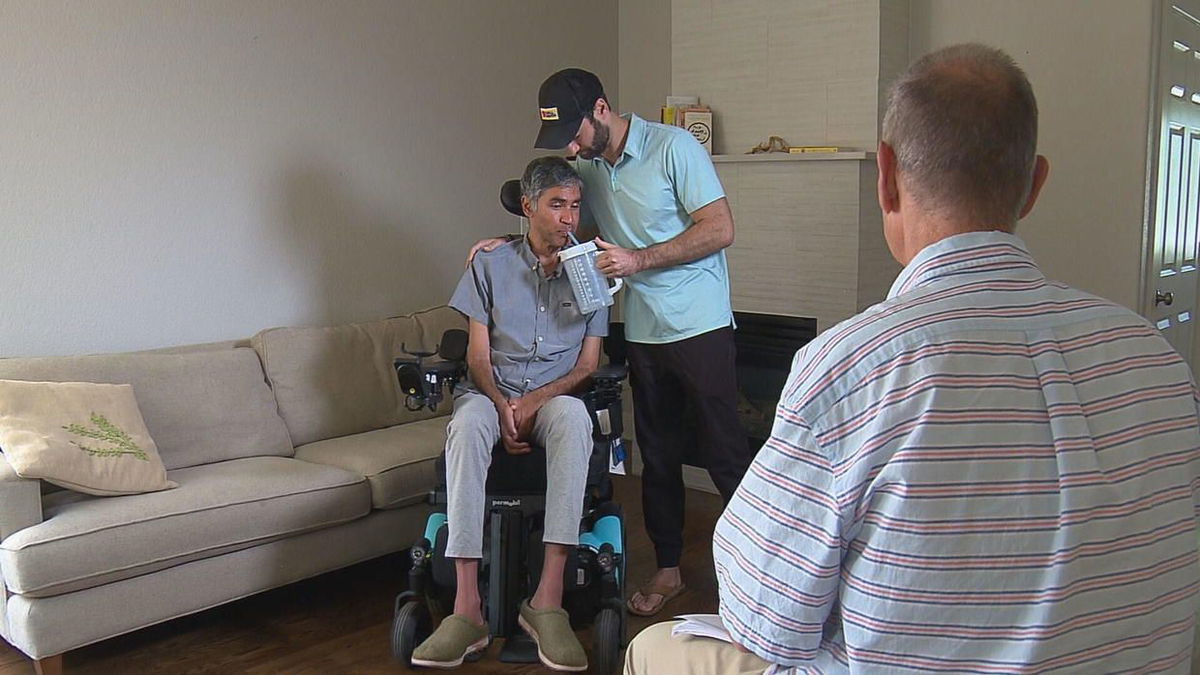Man explains decision to seek medical aid in dying: “Some control in a situation where there hasn’t been any”

At 47 years old
By BRIAN MAASS
Click here for updates on this story
BOULDER, Colorado (KCNC) — At 47 years old, Atif Ali thought he would be at the mid-point of his life. Instead, he finds himself planning for his death, as he has been diagnosed with ALS, also known as Lou Gehrig’s disease, which has no known cure.
“My first reaction was, ‘what do you mean? I don’t feel like that, I don’t feel like dying in a year,’ which is what I was hearing,” said Atif, recounting his 2021 diagnosis.
Like an increasing number of Coloradans, Atif, who lives in Boulder, has decided to access Colorado’s medical aid-in-dying program, which was approved by voters in 2016. It allows terminally ill patients with a prognosis of six months or less to live, to request and self-administer medical aid-in-dying medication in order to voluntarily end their lives.
Last year, 316 patients in Colorado were prescribed aid-in-dying medication, a 44% increase compared to 2021. The number of patients enrolling in the program has increased every year since the program was established, although as many as one-third of those prescribed the end-of-life medication usually don’t use it.
“I don’t have the use of my hands, I can’t pick up a fork or spoon and bring it to my mouth, or a cup,” said Atif.
ALS is a neurological disease that is diagnosed in about 5,000 Americans every year. It impacts muscles, leading to a loss of the ability to move, eat, speak, swallow, and eventually breathe.
In most cases, there is no known cause of amyotrophic lateral sclerosis, although Atif believes a head-on car accident in 2016 may have triggered the disease.
He says his condition steadily worsened over the last year, leading him to the MAID program.
“I felt it was something I would want on hand to have the option of passing in a peaceful manner which is my understanding about the medication and the process,” said Atif. “It’s not something most of us really, under normal circumstances, want to do. I do plan on using it before I can’t swallow at all anymore.”
Angela Schultz, who works with Compassion And Choices, an advocacy group that supports end-of-life options, says Colorado is one of 10 states, along with Washington, D.C., that has legalized medical aid in dying.
She says the reason more Coloradans are enrolling in the program is due to education.
“The more people find out about it and talk to each other about it, we see an increase that way,” said Schultz.
When CBS News Colorado visited with Atif, he was living in the home of an acquaintance, who had the home up for sale, but took it off the market when she learned of Atif’s condition, and allowed him to live there for as long as he needed.
Other friends and family members have raised nearly $80,000 through an online fundraising campaign to help pay Atif’s expenses like the around-the-clock care he now needs. He is single and his family members live in Texas and Illinois.
“There is a very strong sense of a wider family,” said Atif. “And in that way I count myself lucky.”
With so few options of how to live, Atif says the medical aid-in-dying program is a welcome relief.
“In some sense it gives one last choice where it seems to have not been much choice at all,” he said.
Please note: This content carries a strict local market embargo. If you share the same market as the contributor of this article, you may not use it on any platform.